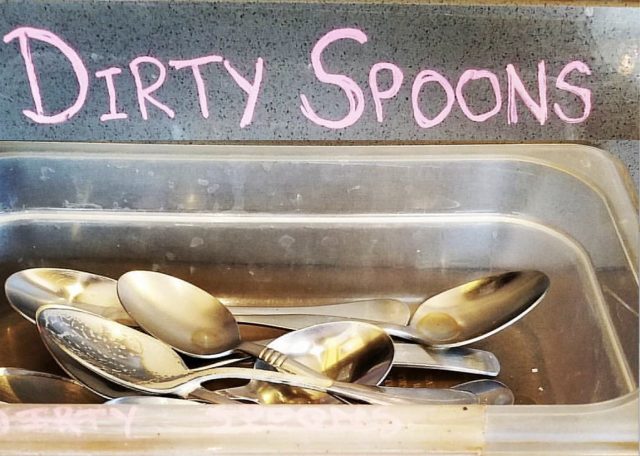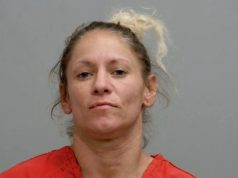
Establishment: El Pedergal Mexican Restaurant, 129 West Main Street, missed the mark on the dirty spoons reports over the past week. On January 29th they received an inspection it was so bad that a second follow-up inspection was warranted on February 12th, but it was just as bad as the original.
According to the online report, the first inspection yielded 11 critical violations and 3 non-critical. The follow-up inspection showed 9 critical violations and 6 non-critical Here is the full list of issues from both reports.
Critical Violations:
Handwashing:
- Improper handwashing procedures: Employees not washing hands when required, not avoiding recontamination after handwashing, and not using paper towels to turn off faucets (3717-1-02.2 (B), 3717-1-02.4(C)(4)).
- Not washing hands at approved sink: Employee observed washing hands at prep sink instead of designated handwashing sink (3717-1-02.2 (D)).
- Handwashing sink misused: Handwashing sink used for storing utensils (3717-1-05.1(O)(2)).
Food handling:
- Cross-contamination: Employee touching raw chicken then ready-to-eat tortillas without washing hands or changing gloves (3717-1-02.2 (C), 3717-1-03.2(N)(1)).
- Improper food storage: Food not protected from contamination by separation, packaging, and segregation, including food stored under a leaking condenser and on the floor (3717-1-03.2(C), 3717-1-03.2(Q)).
- Unsafe food: Molded produce and garlic discarded (3717-1-03.6(A)).
- Improper cold holding: TCS foods not held at proper temperature in walk-in cooler, prep cooler, and other areas (3717-1-03.4(F)(1)(b)).
Utensil and equipment sanitation:
- Utensils and food-contact surfaces not sanitized at required frequency: Facility not sanitizing cutting boards every four hours (3717-1-04.6(B)).
Other violations:
- Leaking equipment: Condenser in walk-in cooler and three-compartment sink leaking (3717-1-04.4(A)(2), 3717-1-05.1(S)).
- Rust damage: Rust damage in walk-in cooler and freezer hindering easy cleaning (3717-1-06.4(A)).
- Pest control: Openings in the back of the facility allowing potential pest entry (3717-1-06.1(M)).
- Improper chemical storage and use: Chemicals stored above food and pesticides used in the facility by unauthorized personnel (3717-1-07.1(A), 3717-1-07.1(C)).
- Inaccurate food thermometers: Thermometers not calibrated at time of inspection (3717-1-04.1(K)).
- Chipped or broken plates: Chipped or broken plates hindering proper cleaning (3717-1-04.1(C)).
Corrections Made During Inspection:
- Wastewater backup in mop sink fixed.
- Food thermometers calibrated.
- Leaking condenser, sink, and handwashing sink misuse addressed.
- Utensils removed from handwashing sink.
- Raw fruits washed.
- Molded produce, garlic, and food from improper storage discarded.
- Chemicals removed from above food storage.
Immediate Actions Required:
- Implement and enforce proper handwashing procedures for all food employees, including washing at the designated sink and using paper towels to turn off faucets.
- Ensure proper cooling of TCS foods following established guidelines.
- Sanitize utensils and food-contact surfaces at the required frequency and monitor sanitizer parameters.
- Replace chipped or broken plates with smooth and easily cleanable surfaces.
- Address the sewage backup issue and ensure proper drainage in the mop sink.
- Seal all openings in the back of the facility to prevent pest entry.
- Implement a system for washing fruits and vegetables before use.
- Air dry all dishes before stacking.
- Repair the leaking condenser in the walk-in cooler and any other equipment issues.
- Address the rust damage in the walk-in cooler and freezer to ensure smooth and easily cleanable surfaces.
- Ensure food is stored properly, off the floor, and protected from contamination.
- Store in-use utensils in a way that prevents contamination.
- Clean non-food contact surfaces regularly.











